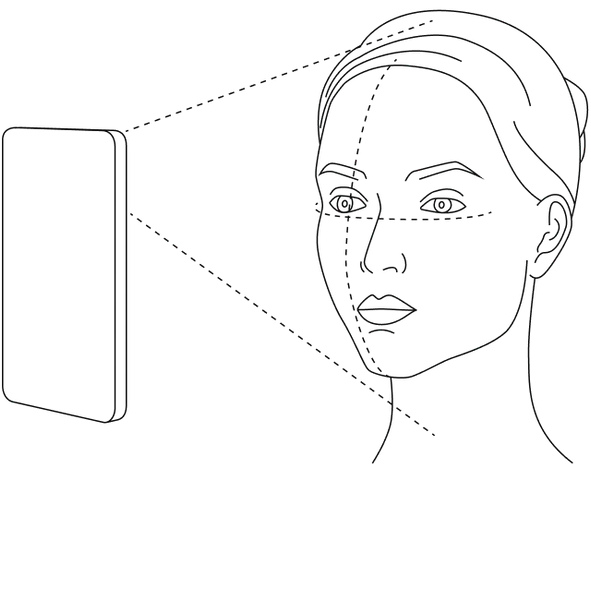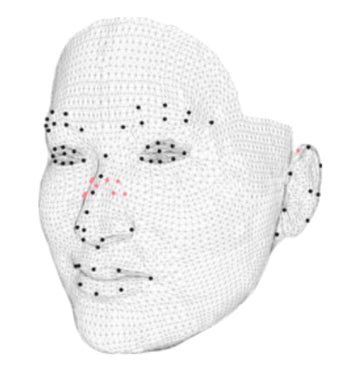Who doesn't like to end the day with a good book? Or checking social media on their phone? Whether you've discovered certain signs of farsightedness or you're simply looking to improve your visual comfort during your daily activities, this article is here to guide you.
We know that choosing the right glasses can seem complicated, but we're here to help. In this article, we'll explore everything you need to know about reading glasses, from frame selection to lens types, available treatments and the distinction from over-the-counter eyewear. Let's dive into the world of reading glasses!
What you need to know about buying reading glasses
- What are reading glasses?
- Prescription reading glasses vs. over-the-counter reading glasses
- How do I know if I need reading glasses?
- Frame selection
- Choice of lenses
- Choice of treatments
- When to wear reading glasses
- Where to buy reading glasses
- Ask for professional advice
What are reading glasses?
Reading glasses, or presbyopia glasses, are specially designed to improve near vision. They are ideal for activities such as reading, writing or using a computer. Unlike progressive glasses, they don't correct distance or intermediate vision (that of computers or tablets). They only respond to a very specific distance - around 40 cm! Not very versatile...
You may see “reading glasses” at the counter of your local pharmacy. It's important to distinguish these ready-to-wear glasses from the customized vision correction glasses offered by New Look. Let's explore the differences!

Prescription reading glasses vs. over-the-counter reading glasses
Available without a prescription, over-the-counter glasses are easily accessible. However, they are not specifically adapted to your eyes, which can sometimes lead to visual fatigue or discomfort. Their zone of clear vision is restricted, like a wall that rises up after a few centimetres. The zone of visual correction is then very limited, comparable to magnifying glasses, which have a generic function. It sometimes becomes necessary to look for the spot where vision is sharp, which can be frustrating.
There are several advantages to turning to prescription reading glasses sold in eyewear stores as opposed to those sold over the counter.
- The vast choice of frames: in-store, you'll find a much wider selection of frames than in a pharmacy. More choice = more chance of finding the style that's right for you = more comfort!
- Customized correction: in the pharmacy, both lenses offer the same correction. In reality, however, the correction required often varies from one eye to the next! And that's not counting astigmatism correction, for example. It's only in a retailer that you'll find the perfect correction for your needs.
- Precise measurements: in our stores, we use cutting-edge technology to provide you with measurements tailored to your face! This precision is essential for your long-term comfort, to avoid headaches and fatigue.
- Advice: our opticians know how to advise you based on your needs and reality.
- After-sales service: as the over-the-counter formula implies, you don't benefit from after-sales service, unlike in a store, where you benefit from a guarantee against manufacturing defects. Drugstore glasses are less expensive, but they're of lower quality and generally not adjustable or repairable, which complicates matters!
Proximity prescription glasses
These progressive prescription glasses are custom-made to your prescription and offer near and intermediate correction. They offer precise correction and high-quality lenses, tailored specifically to your visual needs. What's more, all our lenses include anti-reflective and scratch-resistant coatings! Consult our guide to choosing the perfect eyewear.
How do I know if I need reading glasses?
The best way to find out if you need reading glasses is to have an eye exam with an optometrist. This professional will be able to accurately assess your visual needs and prescribe the appropriate correction. However, here are a few signs that may indicate it's time to book an eye exam:
-
Difficulty reading and blurred near vision: If letters seem blurry or you're having trouble reading up close, it may be time to consult an optometrist.
-
Tendency to hold objects far away: If you find that you hold your books or phone farther away to see better, this could be a sign of presbyopia.
-
Visual fatigue: If your eyes tire quickly when you read or work on a screen, or if you suffer from headaches after working for long periods on the computer, reading glasses could help. Find out more in our article on eye strain.
-
Need more light: If you need more light to read, this may indicate reduced near vision.
-
Difficulty distinguishing fine details: If small print or fine details become difficult to distinguish, reading glasses may be necessary.
-
Age: Presbyopia is common after the age of 40, so pay attention to changes in your vision and have your eyes examined regularly by an optometrist. Do you know how often you should get an eye exam?
When should I wear my reading glasses?
Wear your reading glasses during activities requiring close-up vision, such as :
- Reading;
- Working on a computer;
- Writing;
- Craft activities (sewing, knitting);
- Using a smartphone;
- Reading menus and maps.
For optimized vision according to your activities, consider our Proximity lenses, which offer near and intermediate vision.
Frame selection
Choosing the right frame for your budget, style and face shape is essential. At New Look, we offer a wide selection of frames to suit all tastes.
Choosing lenses
Reading glasses are generally fitted with single vision lenses for close-up vision. During your eye exam, talk to your optometrist about options such as blue light protection, particularly beneficial for those who spend a lot of time in front of screens.
Choosing treatments
Opt for treatments tailored to your needs:
-
Anti-reflective and scratch-resistant: two treatments automatically included with all our lenses! The first reduces glare and improves visual comfort, while the second makes lenses more resistant to scratches.
-
Blue light protection: Ideal for screen users.
-
Proximity specialty lenses: For optimized near vision. Pharmacy-bought reading glasses may seem practical, but they have their limits. Proximity glasses, on the other hand, offer an adaptive lens for clear, precise vision at all near distances, with a far greater depth of vision - from one meter up to three meters! You can see well, everywhere, effortlessly.
Where to buy prescription reading glasses?
Discover our selection of prescription reading glasses at New Look. Our team is available to advise you and help you make the best choice for your visual comfort. Pro tip: make your reading glasses your 2nd pair in our 2 for 1! A practical and clever way to enjoy them.
Ask our team of professionals for advice
Our team is available to advise you on your choice of reading glasses. By following these tips, you'll be well equipped to choose reading glasses that perfectly suit your visual needs and lifestyle. Happy reading!






